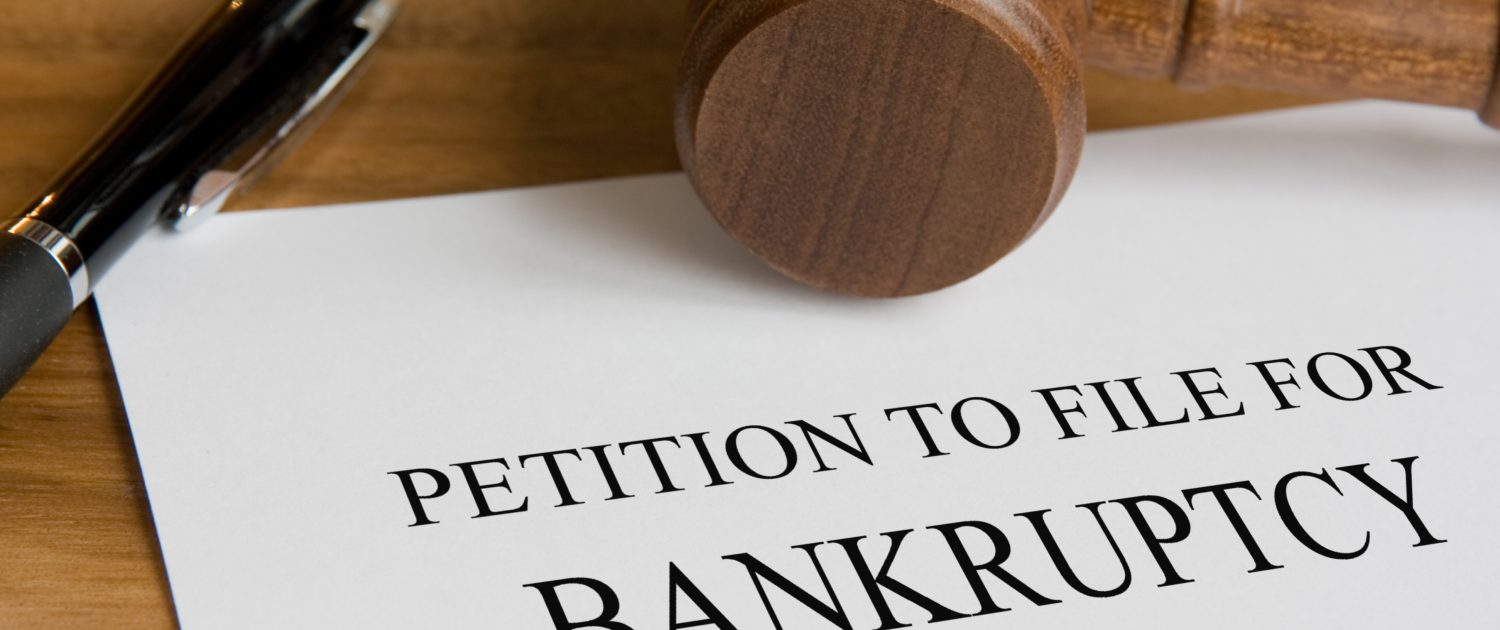Will I have to give up all my assets?
No. The Bankruptcy Code provides that a debtor filing for bankruptcy can keep certain assets for a “fresh start” by exempting property from the bankruptcy estate.
The vast majority of bankruptcy cases are “no asset” cases, in which the debtors have claimed an exemption in everything they own; there are then no assets from which to pay creditors.
The exemptions that are available vary from state to state: this is the only area in which bankruptcy law is not the same in all states.
Do I have to list all my debts?
Yes, you must list all of your debts on your bankruptcy schedules, even debts that are non-dischargeable or secured.
However, you can choose to reaffirm any debt you choose after the filing. Or, you can voluntarily pay a creditor after you receive a discharge, without becoming legally liable to continue paying.
Thus listing a creditor does not prevent you from paying creditors you wish to pay after bankruptcy. Also, omitting a credit card company from your schedules, because you want to retain the use of the card, does not assure continued access to the card: most major credit card issuers use a national data base to determine who has filed bankruptcy, independently of the court’s notice to them of bankruptcy filings. They routinely cancel cards of everyone who has filed bankruptcy, whether or not a balance is owed.
You can’t assure that your creditors won’t find out about your bankruptcy by not listing a debt. And omitting a debt constitutes perjury which could result in your discharge being denied.
Will I lose my house even if I’m current?
Not necessarily.
Is there equity in the property?
If there is no equity in the house (today’s value less costs of sale less payoff balances on all liens) the trustee in a Chapter 7 will abandon the house to you. That is, you keep it, as long as you pay the mortgages.
A bankruptcy does not relieve the property of the liability for voluntary liens, like mortgages or deeds of trust, nor for tax liens. So, the lender retains the right to foreclose if you don’t pay.
If you pay, everyone is happy. Remember, the lender doesn’t want the property; it wants you to pay regularly on the loan. Foreclosure is a last resort for the lender if it concludes it can’t get its money any other way.
If there is equity: Determine whether the exemptions available to you equal or exceed the equity in the property. If the equity is all exempt, you can keep the house, so long as you pay the mortgages. If the exemption is not sufficient to protect the equity, consider Chapter 13.
Also ask yourself, should you keep the house? A different question is whether it is a good idea to keep the house if it is fully encumbered ( that is, the debt on the house is equal to or greater than the value of the house).
Sometimes, debtors have taken out home equity loans such that all of the value in the property is pledged to lenders. Or, the cost of paying the mortgages is greater than the cost of renting comparable housing.
Part of getting a fresh start may be walking away from property that is a greater burden than an asset.
Will the trustee come to my house?
In most jurisdictions, no one will come to your home to examine your personal belongings, unless there is a suspicion that you have hidden assets or undervalued what you own. That is VERY RARE and should not worry you at all.
The trustee and the judge assume that you have truthfully scheduled your assets. Anxiety about the bankruptcy process and the fear of exposure or humiliation is created in the mind of the debtor to a far greater degree than by the reality of the judicial process.
Does my spouse have to file bankruptcy with me?
No, you may file without your spouse. The effect on your spouse and any debts you have jointly will vary depending on the marital property laws in your state.
In community property states, all of the community property (the debtor’s half and the non debtor’s half) becomes property of the estate. In return, the community property acquired by a debtor and his non debtor spouse after the bankruptcy is not liable for payment of community claims listed in the bankruptcy though the non debtor spouse may have liability to the extent of the non debtor’s separate property.
Will bankruptcy stop wage garnishments?
Yes. Once your case is filed, creditors are no longer entitled to garnish your wages for debts that existed at the beginning of the case. The only exception may be for on-going child or family support ordered by a court. The discharge of a debt will forever eliminate a creditor’s right to garnish your wages on account of that debt.
Are there debts that I cannot discharge?
Yes. The scope of the discharge varies in each chapter: in Chapter 7, debts incurred by fraud, intentionally harmful actions, dishonesty, as well as priority taxes, unfiled taxes, family support and debts to a former spouse, student loans, criminal fines and restitution cannot be discharged.
In Chapter 13, you can discharge non support debts to a former spouse, government fines, and some intentional torts that could not be discharged in Chapter 7.
Is the IRS affected by my bankruptcy filing?
The IRS must cease collection actions after a bankruptcy is filed, just like all other creditors. protects the debtor and the debtor’s property. The automatic stay Whether the tax claim will survive the bankruptcy, (that is, whether it is nondischargeable) depends on many variables.
Can I keep my car?
Yes. What you must do to keep the car through a Chapter 7 varies depending on whether there is non exempt equity in the car.
Will the trustee take the car?
If there is no equity in the car, after subtracting any car loan and exemption from the car’s present sale value, the bankruptcy trustee will not take the car.
If there is equity in the car over and above the value of the exemptions available, a debtor can usually buy any unprotected equity from the Chapter 7 trustee.
Will the creditor take the car?
If you still owe money on the car, you can choose to reaffirm the debt to the secured lender, keep the car, and continue paying under the existing terms; or you can buy the car from the secured creditor in a single payment for its present value (redemption). In some jurisdictions, you don’t even have to reaffirm the debt: you can keep the car if you continue to make the payments called for in the contract.
If you choose, you can surrender the car and be free of any obligation to pay for it.
Will I be allowed to file bankruptcy?
Bankruptcy now includes a “means test” which is intended to provide a more objective approach to the issue of a debtor’s ability to pay. Prior to the 2005 amendments, the trustee could ask the judge to dismiss a case because the debtor’s income was so high that to permit the debtor to discharge his debts in Chapter 7 was a “substantial abuse” of the bankruptcy system. Now, the means tests purports to provide uniformity to the process and lowers the standard to simple “abuse”. S 707(b)(2).
The means test calculation is found in Form B 22, now a part of every individual’s CHapter 7 filing.
The United States Trustee or the Chapter 7 trustee can seek to have a debtor’s case dismissed for “abuse” if the debtor’s income, including that of a non-filing spouse, is sufficient to repay a significant portion of the scheduled debts. 11 U.S.C. 707(b). The real expectation is that debtors who are challenged in this way will convert their case to Chapter 13.
The law on this subject is not well developed and the attitudes of trustees and judges about what is “abusive” varies from district to district.
This concept does not apply to Chapter 7 debtors whose debts are primarily business debts, tax debt, or to those filing Chapter 13.
How do I know which chapter to file?
Choosing which chapter of bankruptcy is best for you depends on what kind of debts you have, whether you are behind on secured debts, and whether you have the regular income necessary for Chapter 13. The means test may require some consumers to file Chapter 13 for the sole reason of apparent ability to pay some part of their debts.
Can I discharge my student loans?
Student loans are no longer dischargeable in any chapter of bankruptcy unless you can prove that repaying the loan creates an undue hardship on you or your family. Prior law allowed their discharge once they had been in pay status for 7 years. The law changed in the fall of 1998.
Proving hardship usually requires showing that you can’t provide a minimum standard of living for yourself and your dependents if you have to repay the loan. Some courts will discharge part of the loan on a showing that repaying it all would be a hardship.
Student loans are sometimes unenforceable due to school closures, fraud, etc. Chapter 13 can provide a way to cure defaults on student loans, or to pay them off over the course of the plan.
What do I have to do to file bankruptcy?
Prior to filing bankruptcy, an individual must obtain a credit “briefing” from an approved agency that outlines opportunities for credit counseling. Failure to do so or to meet very restrictive exceptions will result in dismissal of a bankruptcy case.
A bankruptcy case is begun by filing a petition, schedules of assets and liabilities, and a statement of financial affairs with the bankruptcy court and paying the filing fee.
In order to file Chapter 7, an individual whose debts are primarily consumer debts must pass the “means test” or face a motion to dismiss the case or convert it to another chapter. Any individual with debts below the debt caps and a regular income can file Chapter 13.
Individual debtors must file paystubs ( called “payment advices” in the amendments) for the 60 days prior to the filing of the case with the court or the trustee and provide the trustee with the last filed tax return.
You will be required to attend at least one meeting of creditors (the § 341 meeting), in which the trustee and creditors who choose to come can ask you questions under oath about your financial affairs.
How long does filing for bankruptcy take?
The process in Chapter 7 from filing to receipt of the discharge order is between 3 and 6 months, usually. During that period, the debtor generally does not have to do anything other than attend the first meeting of creditors and, in cases filed after 10/17/05, obtain financial management education as required by the 2005 amendments to the Code. The most time consuming part of filing bankruptcy is usually preparing the schedules necessary to file the case.
The discharge affects debts that existed on the date the case was filed or have their origin in facts that occurred before the case was filed.
Can I put my assets in someone else’s name before filing?
Such transfers are not effective to put your assets beyond the reach of creditors and bankruptcy trustees. Worse, such action may lead to the denial of your discharge (11 U.S.C. 727).
A bankruptcy trustee can recover assets transferred within one year of the bankruptcy filing where the debtor did not get reasonably equivalent value for the asset, or where the transfer was made with intent to hinder creditors. The “look back” period may be even longer under the law of your state, giving the trustee that same state law look back period in which to recover assets.
If you have more assets than you can protect with the available exemptions, consider filing Chapter 13 where the debtor generally keeps all of their property and “buys back” the non exempt value from the creditors through payments to the Chapter 13 trustee out of future income .
Even an innocent transfer without consideration can cause serious trouble.
Will I lose my retirement savings?
No, most forms of retirement savings are unaffected by a bankruptcy filing, either because they are not property of the estate or because they may be claimed exempt from the claims of creditors. The 2005 amendments to the Bankruptcy Code expanded the protection for retirement assets.
ERISA plans excluded from estate
The Supreme Court has held that an employee’s interest in pension plans that are qualified under ERISA (the federal law on pensions) are not property of the estate: the debtor doesn’t even have to exempt them in bankruptcy. If an assets is not property of the estate, the trustee can’t cash it in for the benefit of creditors.
Exemptions protect retirement savings that are property of estate
Retirement savings that are property of the estate, such as some Keogh plans and IRAs, can be claimed as exempt up to a million dollars.
Can i get credit after bankruptcy?
Filing bankruptcy does not prevent you from getting new credit. An entire class of lenders targets the recently bankrupt as customers!
Immediately after a bankruptcy filing, you can expect credit to be more difficult to get, more expensive, and limited in amount.
Two years after a bankruptcy discharge, debtors are eligible for mortgage loans on terms just as good as those with the same financial characteristics who have not filed bankruptcy. That is, in getting a home loan after a bankrutpcy, the size of your down payment and the stability of your income will be much more important than the fact you filed bankruptcy in the past.
There is no “right” to credit. Landlords and credit card companies are well within their rights to consider your financial history in their credit decision. However, debtors are protected from discrimination in employment and governmental licensing based solely on the fact that they have filed bankruptcy by provisions of the Bankruptcy Code § 525.
Does a previous bankruptcy prevent me from filing?
It depends on:
- what chapter you want to file now
- what chapter you filed before
- whether you received a discharge in the earlier case
You can only get a Chapter 7 discharge if a previous Chapter 7 case was filed more than 8 years ago. This is a change from the previous period of 6 years.
If you got a Chapter 13 discharge within 6 years, the Chapter 13 plan has to meet certain repayment requirements to permit a Chapter 7 case earlier than 6 years from the filing of the prior case.
If your previous case was dismissed before discharge, it does not count in these considerations.
You can file a Chapter 13 case after a Chapter 7 without any statutory time restrictions. However, under the newly amended Code, you can only get a discharge in that Chapter 13 case if the 7, 11, or 12 previous case was filed more than 4 years ago; if the previous case was also a Chapter 13, two years must elapse between filings. Some courts, however, question the debtor’s good faith, a necessary element to confirm a Chapter 13 plan, if they have recently filed Chapter 7 and received a discharge.
You can freely convert a pending case from one chapter to another. It is the same case, even though the chapter is different, so these time considerations don’t apply. Generally, you can only convert a Chapter 7 to Chapter 13 before the discharge is entered.
Are there tax consequences to filing bankruptcy?
For the average individual debtor, receiving a discharge in bankruptcy has no tax consequences. The Internal Revenue Code §108 excludes the discharge of debt in bankruptcy from its definition of cancellation of debt income. Outside of bankruptcy, cancellation of debt may be treated as if it were income for tax purposes.
If you have received an IRS 1099(c) on a debt discharged in a bankruptcy case, you can file Form 982 to tell the IRS that the sum on the 1099 should be excluded from your income by reason of your bankruptcy.
Note that the debtor’s tax attributes, such as loss carry forwards and exclusion of gain on sale of a primary residence, as they exist before bankruptcy, pass to the bankruptcy estate and may be used or even exhausted by the trustee in the administration of the estate.
Get good tax advice before venturing into bankruptcy if your tax situation is complex.
Can I file bankruptcy without a lawyer?
Remember the old adage that “he who represents himself has a fool for a lawyer”? There is some truth there. The paralegal services and on line bankruptcy providers try to characterize filing bankruptcy as “just filling out forms”. That’s just as true as seeing tax preparation as “just filling out forms”; and the tax forms come with instructions written for the non professional. Bankruptcy forms don’t.
The more assets you have to lose in a botched bankruptcy, the more it is worth your while to pay a lawyer to protect them in a bankruptcy proceeding.
What can go wrong when you represent yourself?
The bankruptcy amendments of 2005 have now studded the Bankruptcy Code with situations in which dismissal of cases is automatic and the relief available when you refile is strictly limited. The means test forms, new in October,2005, are difficult to get through and easy to bungle.
Congress was upfront that it wanted to discourage consumers from filing bankruptcy and made the process substantially more complex and the consequences of mistakes more costly.




